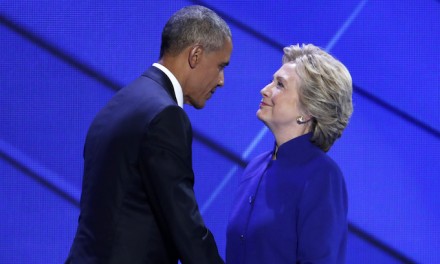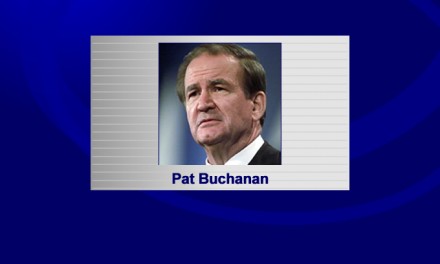It’s one thing for perpetual adolescents to complain about a billionaire purchasing their favorite social media toy. It’s quite another for a former president and a former secretary of state to advocate destroying democracy in order to save democracy.
But Barack Obama and Hillary Clinton did just that recently.
On April 21, Obama spoke at a symposium Stanford’s Cyber Policy Center organized to address the problems social media pose. Among his recommendations, the former president advocated increased government regulation to combat what he called “toxic information,” which he defined as “lies, conspiracy theories, junk science, quackery, White supremacist, racist tracts, misogynist screeds.”
“You just have to raise enough questions, spread enough dirt, plant enough conspiracy theorizing that citizens no longer know what to believe,” Obama said. “Once they lose trust in their leaders, in mainstream media, in political institutions, in each other, in the possibility of truth, the game’s won.”
Not to be outdone, Clinton tweeted the same day her support for the European Union’s Digital Services Act, a series of measures that “sets for the first time the rules on how Big Tech should keep users safe online,” especially concerning “misinformation or propaganda in light of Covid-19,” the Financial Times reported.
“For too long, tech platforms have amplified disinformation and extremism with no accountability,” Clinton tweeted. “The EU is poised to do something about it. I urge our transatlantic allies to push the Digital Services Act across the finish line and bolster global democracy before it’s too late.”
Not for nothing did Obama and Clinton express their positions as Elon Musk attempted to buy Twitter, increasingly known for arbitrarily ejecting users who express inconvenient opinions that contradict “woke” ideology or the Democrats’ policies.
But Obama’s and Clinton’s positions represent more than panic over losing a convenient method of thought control. They reflect the pervasive influence of an insidious idea that contradicts the nation’s fundamental political and cultural values.
That idea is the concept of repressive tolerance, promoted by philosopher Herbert Marcuse. A member of the neo-Marxist Frankfurt School that developed “critical theory,” Marcuse’s views form the basis of today’s cancel culture, university speech codes and online political censorship.
In his 1965 essay, “Repressive Tolerance,” Marcuse dismissed the traditional definition of tolerance. In its place would be an institutional bias that promotes left-wing ideas and suppresses opposing ones.
“Liberating tolerance, then, would mean intolerance against movements from the Right, and toleration of movements from the Left,” Marcuse wrote. “As to the scope of this tolerance and intolerance … it would extend to the stage of action as well as of discussion and propaganda, of deed as well as of word.”
Marcuse even advocated “undemocratic means” in the name of social justice to allow a “subversive majority” to realign society. The means Marcuse outlined have become all-too-familiar to Americans today:
“They would include the withdrawal of toleration of speech and assembly from groups and movements which promote aggressive policies, armament, chauvinism, discrimination on the grounds of race and religion, or which oppose the extension of public services, social security, medical care, etc.
“Moreover, the restoration of freedom of thought may necessitate new and rigid restrictions on teachings and practices in the educational institutions which, by their very methods and concepts, serve to enclose the mind within the established universe of discourse and behavior — thereby precluding a priori a rational evaluation of the alternatives.”
In other words, only left-wing ideas and solutions could be discussed, considered and adopted in Marcuse’s neo-Marxist utopia, as he restated in a second essay in 1968:
“Tolerance would be restricted with respect to movements of a demonstrably aggressive or destructive character (destructive of the prospects for peace, justice, and freedom for all). Such discrimination would also be applied to movements opposing the extension of social legislation to the poor, weak, disabled. (Parenthesis in original)
“As against the virulent denunciations that such a policy would do away with the sacred liberalistic principle of equality for ‘the other side,’ I maintain that there are issues where either there is no ‘other side’ in any more than a formalistic sense, or where ‘the other side’ is demonstrably ‘regressive’ and impedes possible improvement of the human condition.”
Marcuse’s approach permeates the academy. In 2017, K-Su Park, then a law fellow at UCLA, wrote an op-ed in the New York Times challenging the American Civil Liberties Union to reassess its approach to the First Amendment. The ACLU was defending Jason Kessler, who organized that year’s “United the Right” rally in Charlottesville, Va. and sued the city for revoking his permit to hold it.
The ACLU’s approach “implies that the country is on a level playing field, that at some point it overcame its history of racial discrimination to achieve a real democracy, the cornerstone of which is freedom of expression,” Park wrote. “Other forms of structural discrimination and violence also restrict the exercise of speech, such as police intimidation of African-Americans and Latinos. The danger that communities face because of their speech isn’t equal.”
At the time, Park was a fellow in UCLA’s critical race studies program. She is now an associate law professor at Georgetown.
Compare Marcuse’s position with some of Obama’s comments at Stanford:
“A regulatory structure, a smart one, needs to be in place, designed in consultation with tech companies, and experts and communities that are affected, including communities of color and others that sometimes are not well represented here in Silicon Valley, that will allow these companies to operate effectively while also slowing the spread of harmful content.
“It’s not just that these platforms have — with narrow exceptions — been largely agnostic regarding the kind of information available and connections made on their sites. It’s that in the competition between truth and falsehood, cooperation and conflict, the very design of these platforms seems to be tilting us in the wrong direction.”
In perhaps his most revealing remark — one that makes a subtle but firm connection with Marcuse — Obama reinforces his point by drawing a moral equivalence between Russian President Vladimir Putin and Steve Bannon, President Donald Trump’s former campaign advisor and host of the podcast, “War Room”:
“People like Putin and Steve Bannon, for that matter, understand it’s not necessary for people to believe this information in order to weaken democratic institutions. You just have to flood a country’s public square with enough raw sewage.”
Marcuse’s approach plays into an online phenomenon that extends beyond “woke” ideology: Political and corporate interests use social media to create ostensibly grass-roots opinion where none organically exists. The techniques include building supposedly independent social media accounts that disguise the interests involved.
Such campaigns earned a cynical nickname: astroturf.
“The whole point of astroturf is to try to give the impression there’s widespread support for or against an agenda when there’s not,” said independent journalist Sharyl Attkisson, who won five Emmys at CBS News. “Astroturf seeks to manipulate you into changing your opinion by making you feel as if you’re an outlier when you’re not.
“Special interests have unlimited time and money to figure out new ways to spin us while cloaking their role. Surreptitious astroturf methods are now more important to these interests than traditional lobbying of Congress. There’s an entire industry built around it in Washington.”
One way involves manipulating Wikipedia, perhaps the most used online resource.
“Anonymous Wikipedia editors control and co-opt pages on behalf of special interests,” Attkisson said. “They forbid and reverse edits that go against their agenda. They skew and delete information in blatant violation of Wikipedia’s own established policies with impunity. Try adding a footnoted fact or correcting a fact error on one of these monitored Wikipedia pages, and poof! Sometimes within a matter of seconds, you’ll find your edit is reversed.
“You may never fully trust what you read on Wikipedia again. Nor should you.”
Another technique involves incessant personal attacks. That weapon, as too many Americans have experienced, is part and parcel of the “woke” arsenal.
“Hallmarks of astroturf include use of inflammatory language, such as ‘crank,’ ‘quack,’ ‘nutty’, ‘lies,’ ‘paranoid,’ ‘pseudo,’ and ‘conspiracy,’ ” Attkisson said. “Use of the charged language tests well. People hear something’s a myth, maybe they find it on Snopes and they instantly declare themselves too smart to fall for it.”
Add such epithets as “racist,” “homophobe,” “climate denier,” “insurrectionist” and “anti-vaxxer.”
“Be aware when interests attack an issue by controversializing or attacking the people, personalities, and organizations surrounding rather than addressing the facts,” Attkisson said. “That could be astroturf.”
Personal attacks intend to intimidate anybody who dares question a prevailing narrative.
“Astroturfers tend to reserve all of their public skepticism for those exposing wrongdoing rather than the wrongdoers,” Attkisson said. “In other words, instead of questioning authority, they question those who question authority.”
Notice how Obama combined astroturf and the idea of repressive tolerance in his speech to address two ongoing issues: the effectiveness of COVID-19 vaccines and the integrity of the 2020 Presidential election.
“The fact that scientists developed safe, effective vaccines in record time is an unbelievable achievement,” he said. “And yet despite the fact that we’ve now, essentially clinically tested the vaccine on billions of people worldwide, around one in five Americans is still willing to put themselves at risk and put their families at risk rather than get vaccinated. People are dying because of misinformation.”
Those remarks ignore the growing evidence that the mRNA vaccines not only fail to prevent the spread of COVID-19. They contain deadly side effects, especially for the heart, and irreparably damage immune systems.
Obama even became blunt in defending Dr. Anthony Fauci, director of the National Institute of Allergy and Infectious Diseases.
“A lot of times (it) can make it impossible to tell the difference between, say, a peer-reviewed article by Dr. Anthony Fauci and a miracle cure being pitched by a huckster.”
Again, the former president disregards evidence that Fauci is responsible for the single largest death toll from COVID-19 of any nation in the world. Robert F. Kennedy Jr., who runs Children’s Health Defense, disclosed Fauci’s role in his latest book, The Real Anthony Fauci: Bill Gates, Big Pharma and the Global War on Democracy and Public Health.
Fauci “implemented a system of dysfunctional conflicts and a transactional culture,” transforming NIAID into “a seamless appendage of Big Pharma,” Kennedy wrote. That dysfunction included rigging clinical trials and accepting large royalties from drug manufacturers.
Concerning the 2020 Presidential election, Obama promoted the idea that everything was as clean as bleached laundry.
“President Trump’s own attorney general has said that the Justice Department uncovered no evidence of widespread voter fraud. A review of the ballots in Arizona’s largest county, the results of which were endorsed by some pretty courageous local Republicans, because many of them were harassed and received death threats, actually found more votes for President Biden and fewer votes for President Trump. And yet today, as we speak, a majority of Republicans still insist that President Biden’s victory was not legitimate. That’s a lot of people.”
One county in Arizona, however, signifies no trend. Increasing evidence shows numerous irregularities in Arizona, Georgia, Michigan, Nevada, Pennsylvania and Wisconsin — at least.
But the ultimate embrace of Marcuse’s approach comes from the Department of Homeland Security, which announced April 27 the formation of a Disinformation Governance Board, tasked primarily with promoting the Biden “Administration’s” narrative on “irregular migration and Russia.” Leading that board will be Nina Jankowicz, who promoted the now-discredited ideas that Hunter Biden’s laptop was a “Trump campaign product” and that Trump colluded with Russian agents to win the 2016 election.
Jankowicz’s cavalier attitude can be summarized by her Twitter exchange with Attkisson in 2019.
“When did we decide, as Americans, that it’s OK for government and third parties to censor/curate our info?” Attkisson asked. “That we cannot be trusted with unfiltered info? That we should only be able to find info that they tell us is true on matters that are opinion or are in legitimate dispute?” (Emphasis in original)
Jankowicz’s response? “When you clicked ‘I agree’ to the Terms of Service. Free speech is not and has never been guaranteed on a private platform.”
Given the Biden “Administration’s” embrace of the kind of “woke” ideology Marcuse would favor, the DHS’ Disinformation Governance Board also represents the ultimate rejection of the marketplace of ideas, which John Milton and John Stuart Mill advocated — and which form the philosophical basis for the Constitution.
© Copyright 2022 HUMAN EVENTS. All Rights Reserved.
—-
This content is published through a licensing agreement with Acquire Media using its NewsEdge technology.



















Each day that passes as the treasonous, puppet president Joe “B”iden Obama administration fails to uphold the law, he essentially makes a public declaration that his purpose is not to “faithfully execute” but to exploit his position of power for the furtherance of his own interests.. Rather than serving the public that elected him, he reveals a total contempt for them.
Remember this?
This is Obama’s brilliant, cynical, and purposeful attempt to damage the U.S. economy, kill jobs, and bring down capitalism.
Obamacare is not a failure, it’s Obama’s grand success.
It’s not a “trainwreck,” ObamaCare is a suicide attack. He wants to hurt us, to bring us to our knees, to capitulate, so we agree under duress to accept big government.
Obama’s hero and mentor was Saul Alinsky, a radical Marxist intent on destroying capitalism. Alinsky’s stated advice was to call the other guy “a terrorist” to hide your own intentions.
To scream that the other guy is “ruining America,” while you are the one actually plotting the destruction of America. To claim again and again…in every sentence of every speech…that you are “saving the middle class,” while you are busy wiping out the middle class.
And today we have the Treasonous, puppet president Joe “B”iden Obama administration still attempting to destroy the U.S.A..
Words Of Wisdom , by Barack H. Obama, Even thou gh h.e Borrowed Those Words Of Wisdom From A Friends Speech That The Friend gave without giving the friends name and taking credit for those words himself. Then the infamous words of warning from Barack H. Obama about his Vice President, Joe Biden, ” Never Underestimate Joe Bidens Ability To F..k Things Up, ” Came from Barack himself.
Wonder of wonders, George Soros And Hos Personal Financed Organizations , As George Soros Said, ” America Is Too Big For Its Britches And Needs To Be Brough Down A Peg Or Two , ” And the Leftist democrat party along with the likes of George Soros Have Been doing Just That, ” Bringing America And its middle Class ” …Down A Peg or Two … “
Former democrat president Barack H. Obama,” Power Concedes nothing …. ”It never did and Never Will.”
Friedrick Douglass Barack H. Obama still has ” Power.
“We don’t need no education,
We don’t need no thought control,
No dark sarcasm in the classroom, Teacher leave those kids alone—
Hay, Teacher—leave those kids alone.
All in all, you’re just another brick in the wall.”
The Wall by Pink Floyd
Look out, Michelle—Barack’s going after his dream.
Don’t they make a lovely couple?
Hellz no.
It’s not so unusual that Barack H. Obama and Hillary Clinton Should have such a Intimate Close Relationship as the photo suggests after all, as this Quote states, ” Birds of a feather flock together.” Author Unknown
The PinocchiJoe Biden administration wants to make the public square a private platform where they police speech.
“You just have to raise enough questions, spread enough dirt, plant enough conspiracy theorizing that citizens no longer know what to believe,” Obama said.
“Believe me, I know what I’m talking about this time.